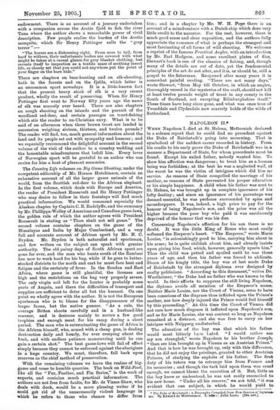NAPOLEON II.* WHEN Napoleon L died at St. Helena, Metternich
declared in a solemn report that he could find no precedent against the Duke of Reichstadt's going into mourning. That is symbolical of the saddest. career recorded in history. From his cradle to his early grave the Duke of Reichstadt was in a manner a Department of State, for whom precedents must be found. Except his exiled father, nobody wanted him. To show him affection was dangerous ; to treat him as a human being was forbidden; at the best he was a neglected waif, at the worst he was the victim of intrigues which did bim no service. As reasons of State compelled the marriage of his mother, so reasons of State prevented his proper education or his simple happiness. A child when his father was sent to St. Helena, he was brought up in complete ignorance of his lofty destiny ; and since an ignorance of hie parentage was deemed essential, he was perforce surrounded by spies and eavesdroppers. It was, indeed, a high price to pay for the honour of being Napoleon's son, and the price was all the higher because the poor boy who paid it was assiduously deprived of the honour that was his due.




















































 Previous page
Previous page